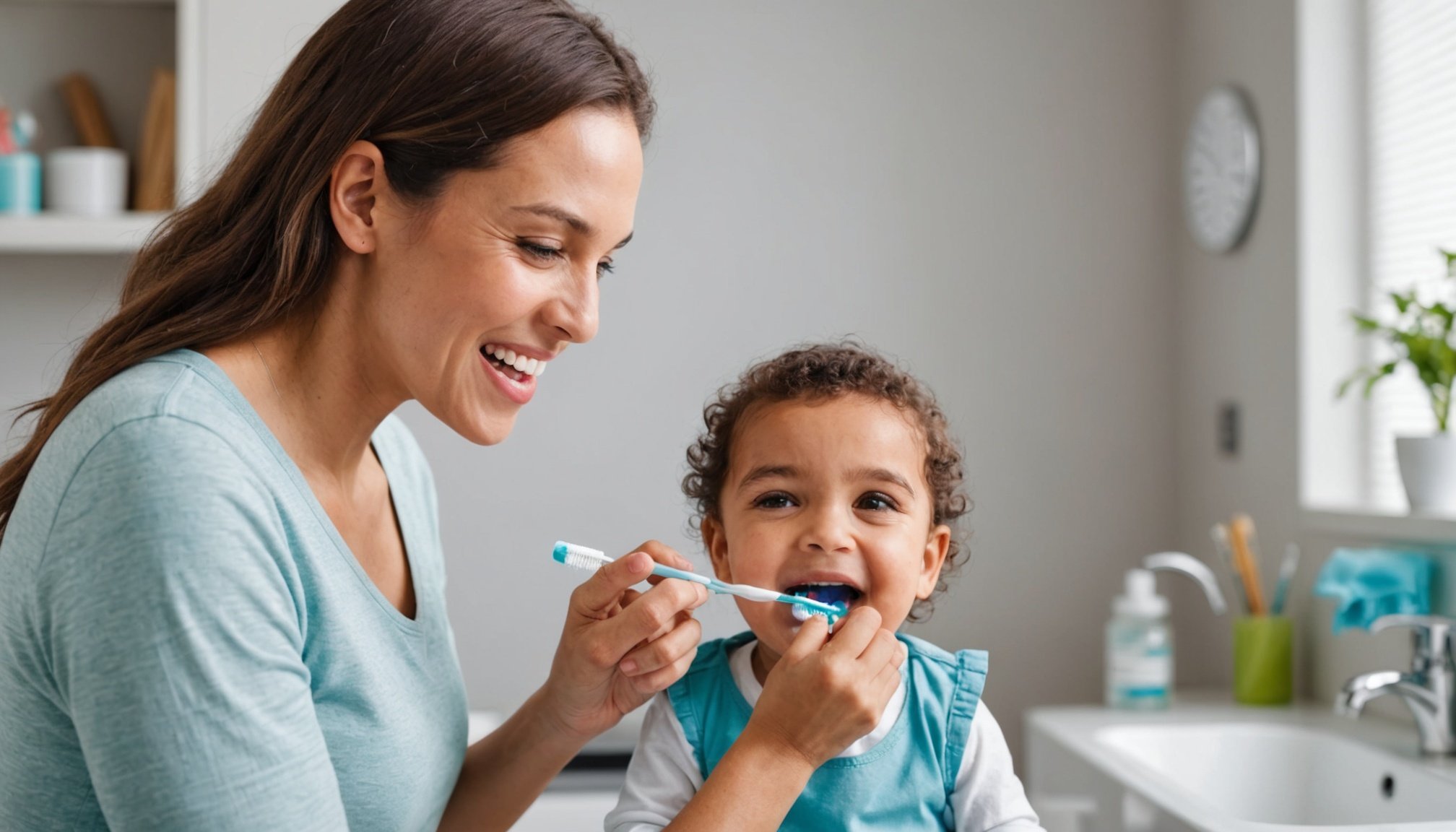Importance of Oral Hygiene During Pregnancy
Pregnancy is a transformative time, not just for the body but also for dental health. Oral hygiene in pregnancy requires special attention because hormonal changes can significantly impact dental health. Expecting mothers might notice their gums becoming more sensitive, known as pregnancy gingivitis, which is quite common. This condition often leads to swelling, redness, and even bleeding.
Neglecting dental care during pregnancy can have serious consequences. Poor oral hygiene may increase the risk of pregnancy complications, such as pre-term birth or low birth weight, posing risks for both mother and baby. Harmful bacteria from dental infections can travel through the bloodstream and affect the unborn child.
Also read : Understanding the UK Guidelines for At-Home Wireless Fetal Monitoring Devices
Dental health professionals stress the importance of maintaining good oral hygiene practices to avoid these complications. Pregnant women are encouraged to use fluoride toothpaste and have regular dental check-ups. It’s vital to treat dental issues early, reducing the risk of further problems.
Overall, practicing effective oral hygiene during pregnancy is crucial. Ensuring that your teeth and gums are healthy not only benefits your overall well-being but also supports the development of your baby. Prioritising pregnancy dental health is a proactive step towards a healthy pregnancy journey.
Also read : Essential Oils and Pregnancy in the UK: Essential Safety Tips Every Expecting Mother Should Know
Common Dental Issues for Expecting Mothers
Pregnancy introduces various dental issues for expecting mothers, primarily due to hormonal changes. One significant condition is pregnancy gingivitis, wherein the gums may become inflamed. This results in sensitivity, redness, and bleeding, making regular dental care crucial.
Hormonal changes during pregnancy also heighten the risk of cavities. Increased blood flow and hormone levels can alter the oral environment, creating the perfect conditions for dental problems. Foods that might not usually affect oral health can become culprits, fueling cavities during this period.
Expecting mothers face increased susceptibility to oral health challenges due to pregnancy hormones. These hormones can affect the body’s response to plaque, bacteria, and other irritants, exacerbating existing dental issues or creating new ones. As a result, maintaining a rigorous oral hygiene routine becomes essential in mitigating these risks.
Understanding these vulnerabilities can aid expecting mothers in proactively addressing gingivitis pregnancy concerns and other dental issues. Regular check-ups, using pregnancy-safe dental products, and following recommended oral hygiene practices can effectively manage these changes. Moreover, healthcare providers should emphasize the importance of keeping a close eye on oral health during these critical months. Keeping cavities and gingivitis at bay can contribute to a healthier pregnancy experience.
Essential Oral Hygiene Tips
During pregnancy, maintaining a rigorous dental care routine is imperative. Pregnancy hormones can complicate oral health, but with informed steps, you can manage these changes effectively.
Daily Oral Hygiene Routine
Begin with brushing twice daily with a soft-bristled toothbrush to combat pregnancy gingivitis. Using fluoride toothpaste helps strengthen enamel, a critical step in preventing cavities. Don’t forget to floss gently every day to remove plaque that a toothbrush might miss.
Recommended Dental Products
Expecting mothers should choose pregnancy-safe dental products. Look for toothpaste rich in fluoride and mouthwashes free from alcohol. It’s vital to select products endorsed for oral hygiene during pregnancy, ensuring they’re safe and effective.
Safe Fluoride Use
The use of fluoride is generally considered safe during pregnancy. It protects teeth by remineralizing enamel. Toothpastes and rinses containing fluoride play a role in preventing cavities and should be a part of your regular routine. If concerned, consult your dentist for alternatives tailored to your needs.
By adhering to these oral hygiene tips during pregnancy, mothers can safeguard their own and their baby’s health. Managing dental care effectively can significantly contribute to a positive pregnancy experience.
UK-Specific Recommendations
Navigating pregnancy oral care in the UK involves understanding the guidance and services available to expecting mothers. The National Health Service (NHS) provides specific NHS dental advice for pregnancy, emphasising the importance of maintaining regular check-ups. Pregnant women in the UK are eligible for NHS-funded dental care, which covers essential treatments without cost, alleviating financial concerns while ensuring access to routine care. This support is crucial for addressing conditions like pregnancy gingivitis and preventing potential complications related to dental neglect.
In addition to routine check-ups, the NHS advises expecting mothers to promptly discuss any emerging dental issues with healthcare professionals. The availability of UK dental services for mothers includes access to oral health specialists familiar with pregnancy-related changes and challenges. These services are tailored to cater to the unique needs of pregnant women, offering a collaborative approach to comprehensive care.
Understanding the importance of addressing dental concerns during pregnancy can be empowering. Discussing oral hygiene practices with a knowledgeable healthcare provider ensures that women receive informed support. Adhering to these UK-specific recommendations fosters better pregnancy dental health, safeguarding both mother and child throughout this critical life stage.
Importance of Regular Dental Check-Ups
Regular pregnancy dental check-ups play a crucial role in maintaining oral health for expecting mothers. These visits help monitor and manage the unique dental health changes occurring during pregnancy. The recommended schedule for dental visits usually includes a check-up once every trimester. This ensures any emerging issues, like gingivitis, can be promptly addressed.
Prenatal dental visits offer numerous benefits. They enable healthcare providers to assess the health of your teeth and gums, identify potential issues early, and guide you on best practices tailored to your current stage of pregnancy. Such assessments are particularly helpful in reducing the risk of complications like infections, which may affect pregnancy outcomes.
When selecting a dental professional, it’s important to choose a dentist familiar with the needs of pregnant women. A knowledgeable dentist can provide specialized care and advice, considering the impact of pregnancy hormones on oral health. This expertise also helps in recommending safe dental care practices and pregnancy-safe dental products.
Ensuring you maintain a schedule for professional dental check-ups, while following personalised advice, aids in safeguarding both your and your baby’s health throughout this transformative period.
Personal Anecdotes and Expert Opinions
Personal stories and expert advice on oral health during pregnancy offer invaluable insights. These real-life experiences can resonate with expecting mothers, who often face unique oral hygiene challenges. Testimonials from expecting mothers frequently mention the importance of maintaining a strict oral hygiene regimen to prevent pregnancy dental issues. For instance, mothers who regularly committed to dental care felt more confident about their pregnancy health.
Expert Insights
Dental professionals emphasise the need for dental care for expecting mothers. According to Dr. Emma Watson, a leading dental health expert, increased hormone levels can exacerbate gingivitis pregnancy risks. Experts recommend routine dental check-ups and proper oral hygiene practices as pivotal to mitigating these concerns.
Testimonials from Mothers
Many mothers share experiences of overcoming dental problems during pregnancy. Michelle, a mother of one, recounts how adhering to pregnancy-safe dental products drastically reduced her gum sensitivity. Her story highlights how informed choices can prevent the escalation of dental complications. Such anecdotes illuminate the practical benefits of expert recommendations and underscore the significance of pregnancy dental health practices for expectant mothers. Firms with these insights, pregnant women can navigate dental health proactively and confidently.
Frequently Asked Questions about Oral Hygiene During Pregnancy
Pregnant women often have numerous pregnancy oral hygiene FAQs. Addressing these can dispel fears and misconceptions regarding dental care during this critical time. One common concern revolves around the safety of dental procedures. Can routine dental cleanings be done during pregnancy? Yes, routine dental check-ups and cleanings are generally safe and recommended at any time during pregnancy.
Pregnancy often raises common concerns dental care in relation to the use of dental products. A frequently asked question is, Is fluoride toothpaste safe for pregnant women? Absolutely, fluoride toothpaste is safe and helps prevent cavities by strengthening enamel. This is crucial to maintaining pregnancy dental health.
Expecting mothers may also wonder, How do pregnancy hormones affect oral health? Hormonal fluctuations can lead to increased sensitivity in the gums, making them prone to gingivitis. This underscores the need for diligent oral hygiene practices.
These pregnancy dental health questions highlight the importance of being informed. Proactively addressing these inquiries can empower women to make educated decisions regarding their dental care. Understanding how to manage oral health effectively can greatly enhance both maternal and foetal well-being during pregnancy.











